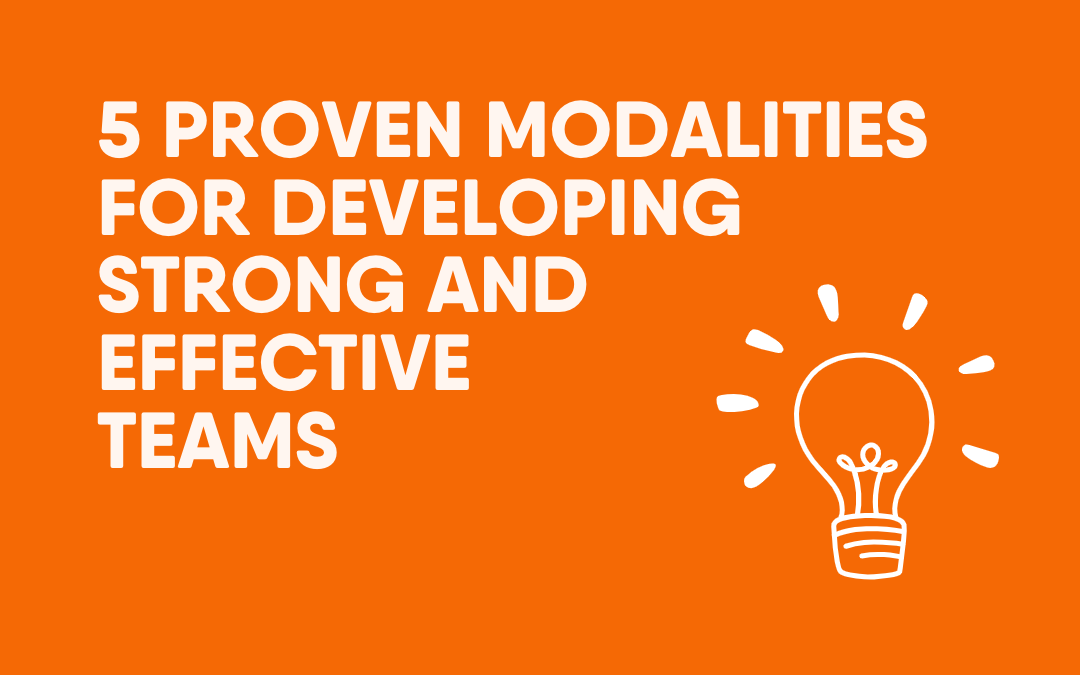Effective teamwork is essential for achieving success in any organization, and there are several approaches to team development and we at wingman like to combine them all.
However, it can be challenging to distinguish between the different methodologies available, as they often overlap in terms of their objectives and strategies.
In this article, we will examine five common approaches to team development:
team building, team facilitation, team consulting, team mentoring, and team coaching.
Team Building
Time frame: short, 1-5 days
Process: exercises
Growth area: enhanced relationships
Team dynamics; conflict resolution: Minimal
Expert; ownership: Instructor
Team building is a process of developing teamwork skills among team members. It involves various activities and exercises designed to build trust, improve communication, relationships and enhance collaboration. Team building aims to create a more cohesive and productive team by identifying areas of strength and weakness and building upon them. Team building can be done through various activities such as team outings, workshops, and retreats.
Team Facilitation
Time frame: short, 1-5 days
Process: Facilitate dialog
Growth area: Clarity
Team dynamics; conflict resolution: Minimal
Expert; ownership: Facilitator and team
Team facilitation involves guiding a team through a process, such as problem-solving, decision-making, or brainstorming. The facilitator helps the team stay on track, encourages participation, and manages any conflicts that may arise. The focus of team facilitation is on the process of achieving a specific goal or outcome rather than on developing individual skills.
Team Consulting
Time frame: Widely variable
Process: Consultant shares expertise
Growth area: Additional insights
Team dynamics; conflict resolution: Minimal advisory
Expert; ownership: Consultant
Team consulting involves an external consultant who is brought in to help a team identify and solve problems or improve their overall performance. Consultants have expertise in specific areas such as leadership, communication, or conflict resolution, and they provide guidance and support to teams to help them reach their goals. Unlike team coaching, team consulting is focused more on advising and guiding teams rather than developing their skills.
Team Mentoring
Time frame: longer period of time
Process: Mentor shares
Growth area: New knowledge
Team dynamics; conflict resolution: Minimal
Expert; ownership: Mentor
Team mentoring involves pairing a more experienced individual with a less experienced one to provide guidance and support. The focus of team mentoring is on individual development rather than on achieving specific team goals. Mentors share their expertise, knowledge, and experience to help mentees develop their skills and confidence.
Team Coaching
Time frame: Longer term, months
Process: Team and Coach partner
Growth area: Achieved goals; Team sustainability
Team dynamics; conflict resolution: Integral
Expert; ownership: Team!!
Team coaching is a more personalized approach to team development, where a coach works with a team to identify and overcome any obstacles hindering their success. The coach helps team members build their skills and confidence, provides feedback on their performance, and helps them set goals and strategies for improvement.
—
In conclusion, each approach has unique objectives, strategies, and benefits. Organizations should carefully consider their goals and choose the most appropriate methodology for their needs. If you want to discuss the best process for developing your team, do not hesitate to get in touch. Ultimately, a successful team is one that works together effectively, communicates openly, and continuously improves its performance.
